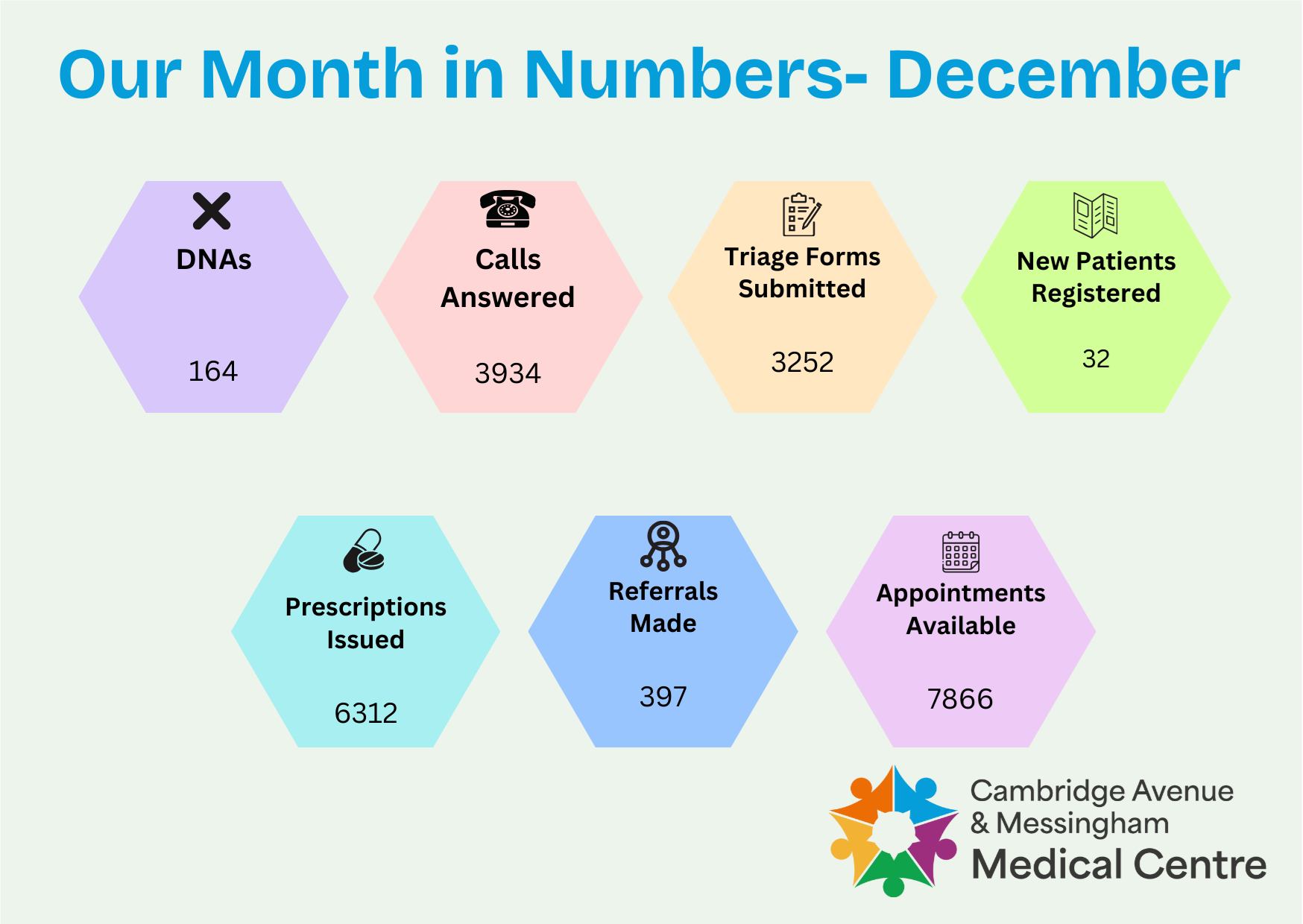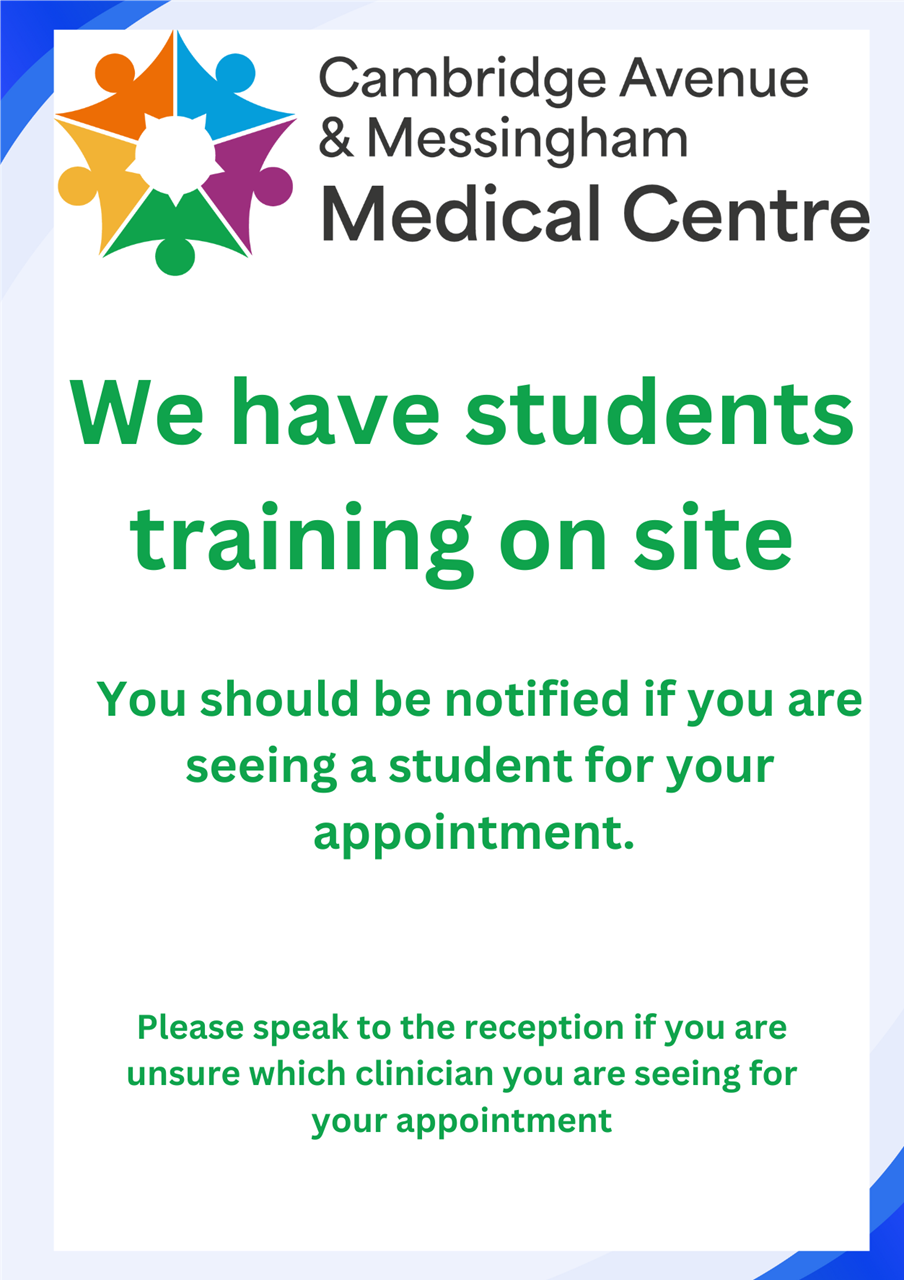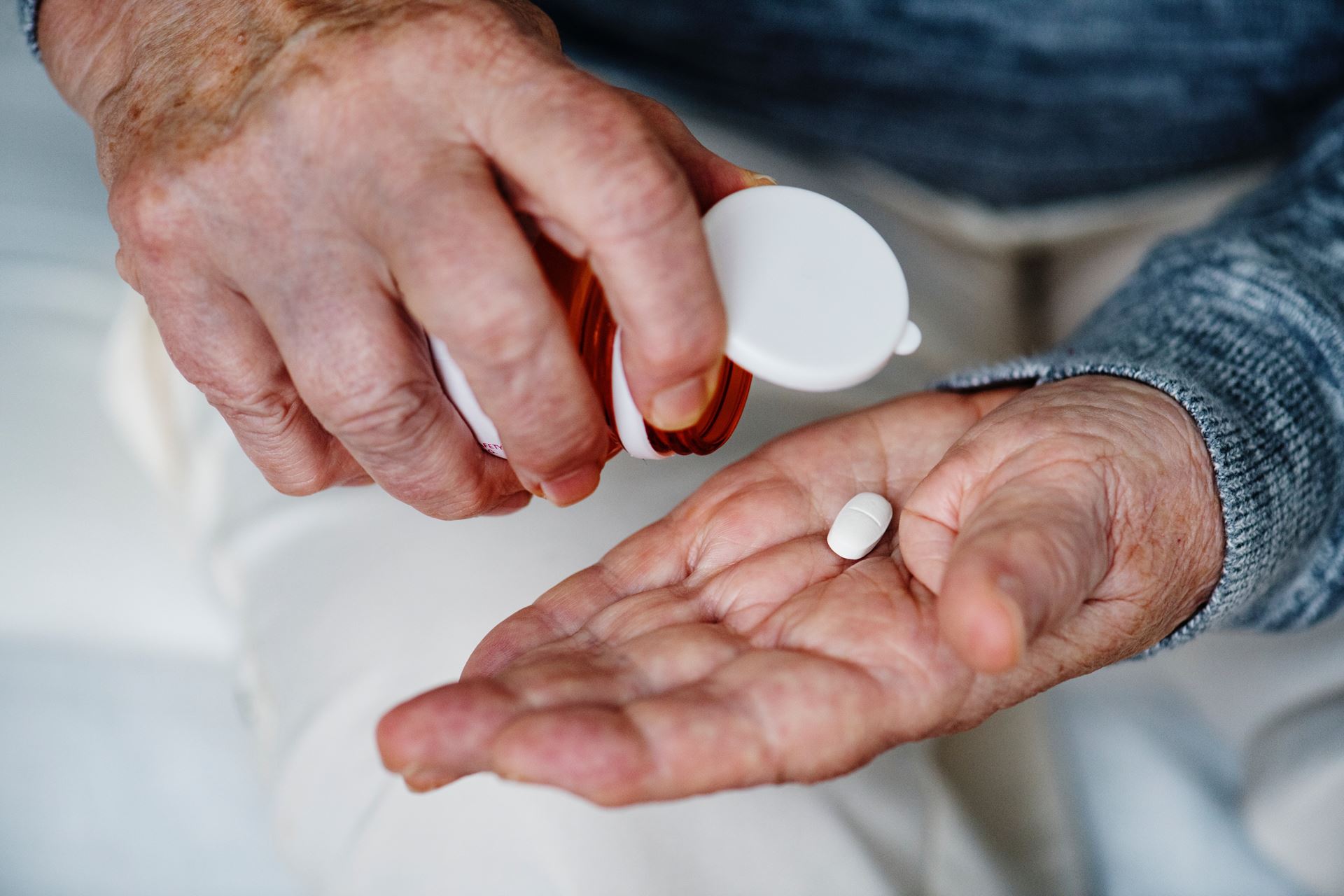Patient Services
Practice Updates
Our triage form is now open till 6.30pm every week day, use this instead of ringing the surgery to beat the phone queues!
If you are turning 65 you are eligible for the pneumaccocal vaccine to protect you against pneumonia. Contact the surgery to get yourself booked in for an appointment with the practice nurse.
Follow us on Facebook to get regular updates on our services, important information and any changes occuring within the surgery.
As of 01.01.2026 the surgery will no longer be prescribing Diazapam for flight anxiety.
Updated 05.01.2026
Total Triage
At Cambridge Avenue Medical Centre, we are now booking appointments through our Total Triage system. You can now request an appointment yourself at home, our form opens from 7am until 6.30pm. Click on 'Request an Appointment' to complete the form which will go through to our clinicians and be reviewed within 72 hours.
- If you require assistance to complete the form you can still contact our reception team on 01724 842415.
- Our phone lines remain extremely busy, completing the form at home means you can skip the queues.
- A clincian will review your request and be in contact with you within 72 hours with advice or an appointment.
- If you complete the triage form after 5pm on a weekday it may not get looked at until the following working day.
Friends and Family Test
Please follow the link below to answer three simple questions about your recent visit to our surgery.
Completing the questionnaire can allow us to improve our services for patients, if you would like any assistance filling out the friends and family test, please contact the surgery.
As of 02.01.2025 our average score is 4.59 out of 5 and we have had a total of 6100 responses.
Thank you for your support

Our Practice News
Telephone Lines
Our telephone lines remain very busy, we continue to experience high demand on our telephone lines.
First thing in the morning is considered a peak time for the practice, if your request can wait please contact the practice at an alternative time.
The staff will answer your call as soon as they can.
Why not save time and try our new online consultation form, you can request to book an appointment, cancel an appointment, request fit notes, test results, submit medication queries as well as look at self help information. Or for any minor health concerns you can contact a local pharmacy (see above information)
NHS App Online Access to Records
All GP surgeries are required to give all patients in England online access to new information as it is added to their GP health record.
Patients with online accounts, such as through the NHS App, should be able to read new entries, including free text, in their health record. This applies to future (prospective) record entries and not historic data.
These pages provide support and guidance for primary care teams, staff working in other health and care services, commissioners and voluntary organisations.
Patients wanting to find out about accessing their GP health records can also visit How to get your medical records.
Find out more about these changes and why they are being made.
If you would like further help accessing the NHS App please use the link below.
NHS App help and support - NHS (www.nhs.uk)
If you require any historical information from your records, please ask a receptionist for a Subject Access Request form. Please complete this form and return to the surgery. This is then approved by a GP who may wish to call the patient before releasing any copies of notes. We advise these requests can take up to 28 days due to the amount of work involved.
Pharmacy First
Pharmacy First service -
Your local pharmacy now see and treat 7 common conditions without needing a GP surgery appointment.
Sinusitis adults and children over 12 years.
Sore throat adults and children over 5 years.
Infected insect bite adults and children over 1 year.
Impetigo adults and children over 1 year.
Shingles adults ages over 18 years.
Urinary tract infection women, aged 16 to 64 years.
Acute otis media- children aged 1 to 17 years
Patient information
Named GPs
All patients must be assigned a 'named GP' within 20 days of registering with the surgery.
- Patients have the right to request a certain doctor to be their named GP, however this cannot always be possible for the surgery.
Patients have the right to know who their named GP is, please contact the surgery on 01724 842415 for the reception team to let you know of this information.

When booking in an appointment for a patient, reception should let you know whether you are seeing a student GP/Nurse. If you are unhappy with the clinician you have been booked in with - the reception team will find you a different appointment.
Please note this appointment may be for another day in the future.
Opening Times
Social Prescribing service
Social prescribing is when residents are linked to local community groups and services to enable them to develop skills and confidence to improve their self care and tackle the social causes of ill health and wellbeing.
Who is social prescribing for?
The service is for all adults (18+) who are North Lincolnshire residents in need of information, advice and support to cope with everyday life.
Social prescribing focuses on:
- Supporting people to cope with their long-term conditions; or those of someone they may care for; increasing independence to enable and empower people to self-manage their own health and wellbeing
- Reducing social isolation; supporting those who are feeling lonely and looking for social opportunities to get more involved in the community
- Signposting people with social, emotional or practical needs to a range of local services, often provided by the voluntary and community sector
- Promoting a holistic approach to health and wellbeing by focusing on the wider determinants of health and supporting people to access relevant services e.g., housing, welfare advice and employment programmes, as well as health promotion services such as smoking cessation and physical activity.
Benefits of providing this service
Many people go to their GPs as a familiar route to seek help, but often the problem is not just a medical need – this is when the social prescribing route will be offered.
Evaluations of local social prescribing schemes have reported reduced pressure on NHS services, with reductions in GP consultations, A&E attendances and hospital bed stays for people who have received social prescribing support.
How do I access social prescribing?
Fill in the online contact form, stating your interest in the social prescribing service, or speak to your GP practice staff who will be able to directly refer you to a social prescribing link worker.
Gold Standard Framework (GSF)
Cambridge Avenue and Messingham Medical Centre are a proud member of the Gold Standard Framework (GSF) Register.
The Gold Standards Framework (GSF) is a registered charity and has been the UK’s leading training provider for generalist frontline staff in caring for people in the last years of life for over 25 years. GSF is a practical and evidence-based end of life care service improvement programme.
Our aim is the enable a ‘gold standard’ of care for everyone, with any condition, in any setting, given by any care provider, at any time in a person’s last years of life.
Page created: 21 December 2023




